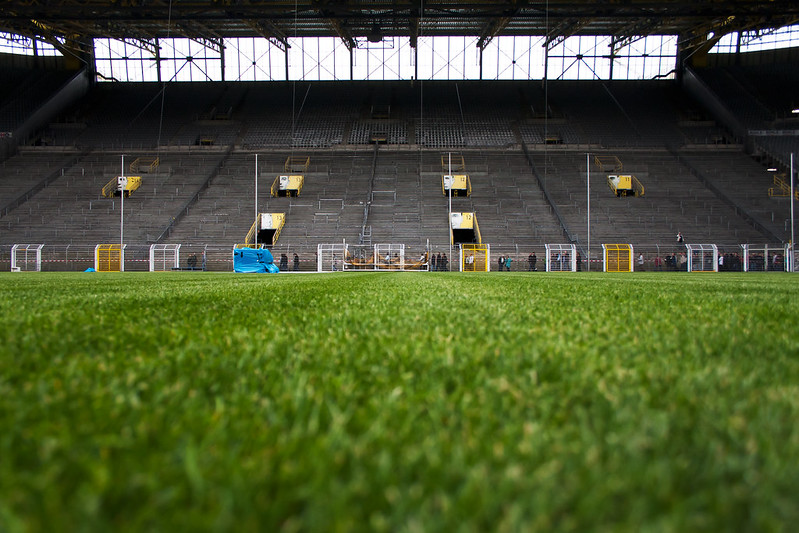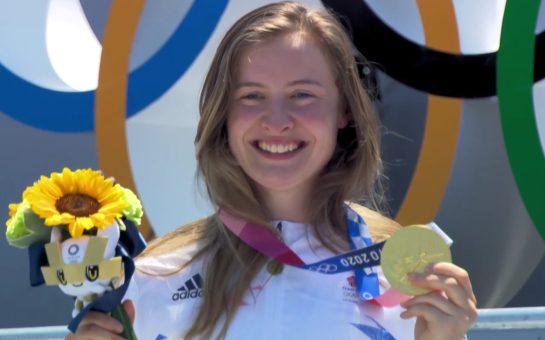A prolonged career in the bright lights of professional sport is the ultimate dream for millions.
The adrenaline, fame, achievement and adulation is tantalising yet so far away for the many who aspire greatness in their sporting field.
Those who realise their dreams and become acclaimed as professional athletes are few and far between but the journey to stardom is so often underpinned by an insatiable determination, a unique dedication and most importantly, a refusal to quit.
But what happens when quitting is the only option that remains? The most elite professional athletes are laser-focused and a path to the pinnacle of their sport is always defined.
Athletes become consumed by a pursuit of goals, rankings and trophies in the unique bubble of professional sport.
However, when that journey ends and retirement looms, the water becomes very murky.
For so many, it is not just the routine that a sporting discipline brings that is lost in retirement but an entire identity. No longer in the spotlight, voices go unheard and the dream can very quickly turn into a nightmare.
Stephen Wild was a decorated rugby league player with a distinguished career that lasted 15 years at the top level. A Great Britain international, Wild’s career will be best known for his peak Super League years at Huddersfield Giants and hometown club Wigan Warriors.
But when his playing days were up after a stint at North Wales Crusaders in 2017, reality hit home. Chasing highs, Wild embarked on a reckless fitness mission.
“It was a slap in the face for me,” Wild told MM when reflecting on retirement five years ago.
“It’s impossible to find the adrenaline from playing again and you’re always searching for that high. I went into exercise which was my own chase, pushing my body to the limits. It got to the stage where I wouldn’t have been able to walk in ten years because of what I was doing to my body.”
“A lot of players go into alcohol and betting to find that high but for me it was exercise and conditioning but I was spending 50 to 60 hours in a gym every week trying to search and fulfil something I didn’t have. I was never at home, finding excuses to work and stay at the gym. I didn’t want to let that go. I was hiding myself from everything on the outside in the bubble of working and training.”
While some feel the effects of retirement straight away, the impact can also be delayed.
Fraser Franks was a footballer who had just lined up for Newport County in a magical FA Cup tie against Manchester City before his retirement at 28. A week after facing Pep Guardiola’s all-stars, Franks was lying in the cardiovascular ward of a hospital being told a rare heart condition meant he had no choice but to retire.
The love of sport is what fuels successful careers and Franks had to come to terms with losing the buzz of playing.
“When I first came out of the game there was a novelty of a different routine and there was something that made me enjoy the freedom,” Franks admitted.
“But when that novelty wears off you’re thinking ‘What am I doing now? It was a delayed effect for me. I tried to kid myself that I was okay and didn’t miss it but a few months later it couldn’t have been worse. It’s not just a job for a footballer. It’s who you are and when that’s taken away there’s nothing left to give.”
The identity crisis that engulfs retired athletes can go unrecognised but remains prevalent across a range of sports.
Danielle Brown is a double Paralympic champion in para-archery who was told she could no longer compete by classifiers despite suffering from complex regional syndrome, a rare condition that causes chronic pain in her feet.
Brown had monopolised para-archery with her success but could no longer defend her London 2012 title in Rio de Janeiro four years later. The chance of a dream third gold medal was suddenly snatched away.
“I held quite a bit of resentment and I went through a complete identity crisis,” Brown admitted. “I was an elite athlete and then I wasn’t, literally overnight. I went through all the different stages of grief. I felt like someone had picked me up and dumped me in the middle of the ocean and I had to swim to shore without knowing which direction to go.”
The transition for directionless athletes into the next stage of their lives is so often problematic. Careers in sport are so short and escapism is rife as people become lost when searching for the next step. Sportspeople can spiral with drugs and alcohol commonly used to block out troubles. And there is a feeling within sporting spheres that not enough is being done to educate and prepare before the next step.
“I slipped through the net because I was quiet,” former rugby league star Wild said. “I wasn’t a binge drinker and we almost have to get to that stage of explosiveness before something is done. We’re missing a trick in helping them at the worst point of life rather than their best.”
Wild is part of the solution as he now helps struggling former rugby stars with gym plans to provide the structure that is no longer in their lives.
Athletes are often single-minded in their hunt for glory but ex-footballer Franks, who returned to education with a Masters degree in Sporting Directorship, believes there must be an acknowledgement earlier on that a secondary career is inevitable.
“Any player that is 27 and over has this nagging feeling of dread, worry and panic,” he said.
“I retired at 28 but from the age of 25 I was already panicking about what I was doing after football.”
“We need to separate the player from who you really are and realise there is a life after sport,” he said.
“They need to prepare for a career after a career that they’ve not even started yet.”
There will seldom be sympathy for the ones fortunate enough to make it to the top level in sport. But a sports fan must also consider that most of these careers are so finite. The glitz and the glamour that a life in elite level sport promises doesn’t come with a retirement plan.
A clearer pathway must be forged.
Main image credit: “Empty Stadium” by kuemmi is licensed under CC BY-NC-SA 2.0.




